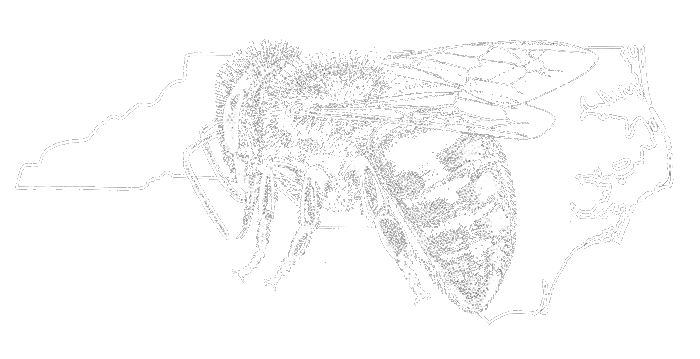To reduce fraud and protect the apiary industry, honey consumers and beekeepers, state and federal agencies have enacted laws related to honeybees and honey. Although the U.S Food and Drug Administration (FDA) and the state of North Carolina have declined to comprehensively regulate honey, it is prudent for a beekeeper to know their legal obligations and protections.
Federal Laws
The Honey Bee Act of 1922 was the first federal law pertaining to beekeeping in the United States. It has been amended several times. Its current form covers a number of issues, including importing honey bees, punishment for unlawful importation, propagating bees, and eradicating and controlling undesirable species and subspecies. You can read more about the current, amended Honey Bee Act here.
The U.S. Department of Agriculture provides voluntary guidelines for extracted honey grades. They are detailed in USDA’s 1985 publication: United States Standards for Grades of Extracted Honey. These guidelines were issued under the Agricultural Marketing Act of 1946, which provides allows the development of official U.S. grades to designate different levels of quality for agricultural products.
Another federal agency, the FDA also provides guidelines for honey. In 2018, they issued two draft guidance documents for comment.
In February 2018, FDA issued draft Federal Guidelines for Proper Labeling of Honey and Honey Products. These guidelines, which are recommended – not mandatory, provide answers to these questions:
- What is honey?
- How shall I name my honey?
- Do I have to declare the floral source of honey?
- If a food consists of honey and a sweetener, such as sugar or corn syrup, can I label the food as only “honey”? How should I label such a food?
- If a food consists of honey and a flavor ingredient, such as natural raspberry flavor, what are the labeling requirements?
- How would consumers know whether the food is honey, a blend of honey and another sweetener, or a honey product that contains other ingredients.
- How would consumers know if a food product contains two or more ingredients contains honey?
- What enforcement authorities does FDA have for food products that are represented solely as “honey,” but contain other ingredients?
- How does FDA monitor imported products labeled as honey to ensure that they contain only honey as the sole ingredient?
In March 2018, FDA issued Draft Guidance for Industry: Declaration of Added Sugars on Honey, Maple Syrup, and Certain Cranberry Products. These draft guidelines allow a footnote on honey nutrition labels that states: “All these sugars are naturally occurring in honey.”
More information about federal labeling requirements can be found here.
North Carolina State Laws
In addition to federal guidelines, beekeeping and honey are covered by North Carolina state laws. The North Carolina Honey Bee and Honey Act of 1977 authorizes the North Carolina Commissioner of Agriculture and the N.C. Board of Agriculture to promote, improve, and enhance the bee and honey industry in North Carolina, particularly relative to small beekeepers. It also allows for the protection of the bee and honey industry from bee diseases and disorders, and it provide regulatory services for the pollination of plants, honey bee poisonings, thefts, bee management and marketing. This 1977 law also prohibits cities and counties from enforcing any ordinance or resolution that prohibits people from owning or operating five or fewer bee hives.
The North Carolina Department of Agriculture rules, regulations, definitions and standards for North Carolina honey and the bee industry are detailed here:
More information about North Carolina labeling requirements can be found here.
Bottling Honey
When bottling honey bought in bulk and repackaged, NC honey producers should follow the federal Good Manufacturing Practice laws.
All others who are bottling honey their bees have produced should follow home food processor guidelines.

